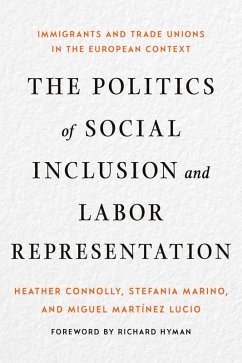Contesting Precarity in Japan details the new forms of workers' protest and opposition that have developed as Japan's economy has transformed over the past three decades and highlights their impact upon the country's policymaking process.
Drawing on a new dataset charting protest events from the 1980s to the present, Saori Shibata produces the first systematic study of Japan's new precarious labour movement. It details the movement's rise during Japan's post-bubble economic transformation and highlights the different and innovative forms of dissent that mark the end of the country's famously non-confrontational industrial relations. In doing so, moreover, she shows how this new pattern of industrial and social tension is reflected within the country's macroeconomic policymaking, resulting in a new policy dissensus that has consistently failed to offer policy reforms that would produce a return to economic growth. As a result, Shibata argues that the Japanese model of capitalism has therefore become increasingly disorganized.
Drawing on a new dataset charting protest events from the 1980s to the present, Saori Shibata produces the first systematic study of Japan's new precarious labour movement. It details the movement's rise during Japan's post-bubble economic transformation and highlights the different and innovative forms of dissent that mark the end of the country's famously non-confrontational industrial relations. In doing so, moreover, she shows how this new pattern of industrial and social tension is reflected within the country's macroeconomic policymaking, resulting in a new policy dissensus that has consistently failed to offer policy reforms that would produce a return to economic growth. As a result, Shibata argues that the Japanese model of capitalism has therefore become increasingly disorganized.
Dieser Download kann aus rechtlichen Gründen nur mit Rechnungsadresse in A, D ausgeliefert werden.









